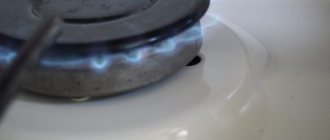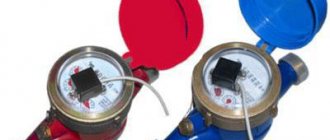Each resource supplying organization is obliged to ensure uninterrupted supply of the population with all the resources that are provided in a particular residential building. But, in some cases specified by law, their termination is still possible. In such cases, residents of apartment buildings are always interested in how long they can turn off hot water according to the law? This will depend on the reasons why the DHW supply is temporarily stopped: the period can vary from several hours to two weeks.
Main reasons for shutdown
Periodic temporary restriction of water supply is a completely legal procedure. All communications require attention and control from the supplier, as well as routine or major repairs. Naturally, it is impossible to replace a pipe without temporarily stopping the supply of water resources.
The reasons for temporarily limiting the supply of this vital resource to the population are divided into two groups - planned and unforeseen.
Planned:
- Annual summer (preventive) shutdown of hot water supply, which is intended for preventive inspection and necessary repair of water pipes in some areas.
- Temporary shutdown of hot water supply to certain categories of residents of apartment buildings who are in arrears for utility bills. Continues until the tenant fully repays the debt on housing and communal services or until the debtor signs an agreement on debt restructuring.
- Disconnection of apartments where fraud with metering devices on the part of residents was discovered. In this case, the provision of the service is terminated until the violator has fully paid the entire debt, as well as all fines, penalties and penalties.
In the event of a planned temporary cessation of service, the resource supplying organization must notify residents of an apartment building or microdistrict in advance. Residents are notified of the cutoff date and how long it will last.
When water supply is stopped for violations in consumption (the second and third points of the list of reasons for restrictions), the management company or homeowners association is not required to announce the period for which it will be turned off. The reason is that the limitation period will directly depend on how quickly debtors repay the debt, or how quickly they can restructure their debt.
Unforeseen ones include:
- Any failure of water supply networks.
- Malfunction of equipment used to supply water.
- Any natural disaster that caused a malfunction of water supply networks or an obstacle to the normal supply of resources to residential premises (thunderstorm, fire, hurricane, flood, etc.).
- Emergency. This also includes the immediate threat of complete destruction of the water supply system or part of it, as well as a serious disaster in the water supply networks. In this case, all utilities are transferred to emergency mode. The hot water supply is shut off for the time required to completely eliminate the emergency or prevent the possibility of a disaster. It is allowed to shut off the hot water supply not only in certain areas, but throughout the entire city or region.
How long can cold water be turned off by law?
Few citizens dare to find out in detail the cause of the problem, while constantly complaining about the quality of service. Unscrupulous cold water suppliers take advantage of inaction on the part of residents. There are increasingly frequent complaints that water supply occurs at low pressure and there are long-term shutdowns without prior warning. In this article we will look at what to do if there is no cold water or the cold water supply is turned off for non-payment or for unknown reasons.
Interesting: Deregistration of a car due to sale for legal entities
The supply of cold drinking water is included in the list of provided utilities. According to the laws, the provision of cold water at the normal level must be in all residential premises. It turns out that the supplier often does not fulfill his responsibilities one hundred percent. Almost every summer we can observe a decrease in pressure or a shutdown of water for a long period.
For what period, in accordance with Russian legislation, is the restriction permissible?
The period for which hot water supply is legally shut off will depend on the reason. The rules are the same as for the temporary interruption of cold water supply: no more than four hours a day, and no more than eight hours during the month. Preventive shutdown of hot water supply, which is carried out annually, in accordance with Government Decree No. 354 of May 6, 2011, should not exceed two weeks.
Deadlines under which it is permissible, according to 2020 standards, to limit the supply of hot water in winter and summer:
- In the event of an accident on water supply networks, utility services may stop providing services: for 8 hours or less in total during the month;
- for 4 hours or less during one day;
- for no more than a day if the damage occurred in a dead-end direction of the water supply.
Can hot water be turned off for longer than 4 hours?
According to sanitary and epidemiological standards, citizens must be supplied with hot water uninterruptedly and hourly. However, the same document also contains reservations about reality - permissible shutdown standards. The sum of the total shutdown time should not exceed 8 hours per month, while at a time - only 4 hours
(that is, you understand how “legitimate” it is to turn off water for a day, which is a common thing in our living conditions).
But the annual preventative shutdown, which everyone adores, should not exceed 14 days
, as stated in SanPiN 2.1.4.2496-09. Not a month, not three months, as is practiced in many houses, which are simply cut off from water for the entire summer, but for 14 days! Everyone is constantly arguing whether it is possible to do without this humiliating procedure in principle. And, as usual, there are two answers here - yes and no. It depends on your luck: some houses can be “transferred” to other power sources, while others cannot. Some houses are designed in such a way that until the pipeline is checked, they cannot be connected. The duration of these planned outages may be reduced; many management companies are finding ways to reduce this period to 2 days. But, definitely, increasing the work period is illegal, and in this case you need to contact the Rospotrebnadzor department.
This is interesting: Nowadays pensioners are not issued a pension certificate, but where can they get one?
If there are no earthquakes with floods, no accidents, no notifications, no hot water, you need to act. By phone you can contact the Criminal Code or the emergency dispatch service (each district has its own department). You should be told the reason for the outage - maybe you just don’t know that there is a serious accident on the next street. For unknown reasons, your complaint is registered. Be sure to write down the operator's name and your complaint number. No later than two hours after your application, they should come to you with a check. On this basis, an inspection report is drawn up (one copy remains with you), with which you can apply for recalculation, since your consumer rights have been violated.
What should utility workers do when service is temporarily interrupted?
The rules for providing hot water supply to the population prescribe a certain procedure for its termination. Regardless of the reason for the restriction of water supply, the first thing utilities must do is notify consumers about the reason and for how long the water is being turned off. If there was no such notification, the actions of utility employees can be appealed by residents.
But, if the provision of the service is terminated due to the elimination of the consequences of natural disasters, emergencies or accidents in water supply networks, it is not necessary to notify residents of those houses or neighborhoods that will be disconnected from the hot water supply. The same rule applies when working to disconnect illegal taps into the water supply system, as well as when disconnecting debtors and those residents who flooded their neighbors from the networks.
How long can water be turned off by law?
Actions aimed at promptly eliminating the accident or eliminating the consequences of a disaster do not require notification. This range includes disconnections of unauthorized taps into the system and residential disconnections for debtors and careless residents who threaten their neighbors with flooding.
- To eliminate an emergency situation no more than 8 hours per month. In this case, the daily limit is no more than 4 hours. In case of an accident, a dead-end highway can be repaired within 24 hours straight. There are types of work that are capital in nature and, due to their complexity, cannot be completed within the prescribed time frame. But this is rather an aggravating circumstance for utility workers. And an increase in the period for eliminating the accident serves as a reason for recalculation.
- To carry out mandatory preventive measures, which are carried out only in the summer, the permissible duration of work is limited to 14 days. If the lack of hot water in the fall, or worse, in the winter, is caused by preventive work, then this is not true information. Since this type of work is carried out with the approval of local authorities only in the summer. Despite the inconvenience caused, prevention of the hot water system is very important. The further service life of the system and its quality parameters, such as network pressure and temperature, depend on the quality of work performed.
Interesting: In what order should you change documents when changing your last name?
Informing residents about the upcoming restriction
In the event of a regulatory (preventive) interruption in the supply of a resource, utility companies are required to notify residents in advance. There are several ways:
- Messages posted in the entrances of residential buildings, or on a special notice board. Typically, such messages are posted several days before the planned date so that residents of the houses can prepare for the cessation of water supply. The announcement specifies the date of the outage and the period during which utilities plan to carry out repair work.
- Advertisements posted on the website of the municipal district or on the website of the resource supply organization. Recently, a special function has increasingly been installed on such web pages, with the help of which any site visitor can find out whether a shutdown is planned on his street or in his area, and if preventive work is provided, then the date and period of restriction of the provision of the service.
- Using SMS alerts. In some large cities of the Russian Federation, residents can receive information via SMS. To do this, just send a message with a request to the specified number, in response you will receive a message indicating the time and duration of preventive work in your specific home.
When will the payment for water supply be recalculated?
This is possible in the following situations:
- If the maximum permissible interruption in hot water supply has been exceeded. In this case, the payment is reduced by 0.15% of the amount that was calculated for each hour exceeding the permissible period.
- If there is a deviation from the temperature standard, then for every 3 degrees of deviation the payment amount is reduced by 0.1%.
- In cases where the water temperature at the point of analysis is below 40 degrees Celsius, payment for the entire period is made according to cold water standards.
- In cases where the pressure in the water supply differs from the standard by less than 25%, the payment is reduced by 0.1% from the standard. If the pressure drops by more than 25%, it is considered that the service provided is of inadequate quality.
Where can I complain about water supply problems?
The main authorities that it makes sense to contact are the Housing and Communal Services Department (or department) of the local municipality, as well as the housing inspection or prosecutor's office. The complaint is drawn up in free form, the only condition is that the meaning of what is written must be clear to the reader.
Question:
Does it make sense to complain about utility workers?
Answer:
Yes, sure. Practice shows that a complaint about a violation of your rights during the provision of hot water supply has a serious positive effect, since any inspection based on statements from residents significantly speeds up preventive repairs of networks or the elimination of a water supply failure.
Emergency shutdown of cold water, timing
You can complain about the housing office to the DEZ - a higher organization (if you do not have a management company, but a housing office). It is better to file a written complaint addressed to the manager, and most effectively, come with a complaint in person. You can also file a complaint with the Housing Department. You can write a complaint to the prosecutor's office.
And you need to complain to the Housing Office. It is their responsibility to ensure proper water supply to the residents of the house. If the housing office does not respond or refuses to satisfy the complaint, then you can contact the prosecutor’s office. If the water shutoff caused you material damage, you can go to court to recover this damage from the guilty party. It is possible that the housing office will be at fault.
26 Apr 2020 glavurist 460
Share this post
- Related Posts
- Tariffs for Hot and Cold Water with Meters
- One-time payments at the birth of a child in 2020 in Moscow
- Sample Assignment of Rights and Obligations under a Land Lease Agreement
- List of children on the waiting list for kindergarten
Responsibility for violation
The final supplier of the resource is responsible for any interruptions in water supply, in our case this is a homeowners’ association or management company. In monetary terms these will be the following parameters:
- in case of prolonged interruptions, management companies or homeowners associations make recalculations (for each hour of lack of supply in excess of established standards, payment is reduced by 0.15%);
- when the temperature drops below the set temperature by three degrees, payment is reduced by 0.1% for each hour while the problem lasts;
- if there is a constant violation of standards for a long time, residents can file a claim, in which case the management company, in addition to having to bring all parameters back to normal, will also pay a fine of 5-10 thousand rubles.









